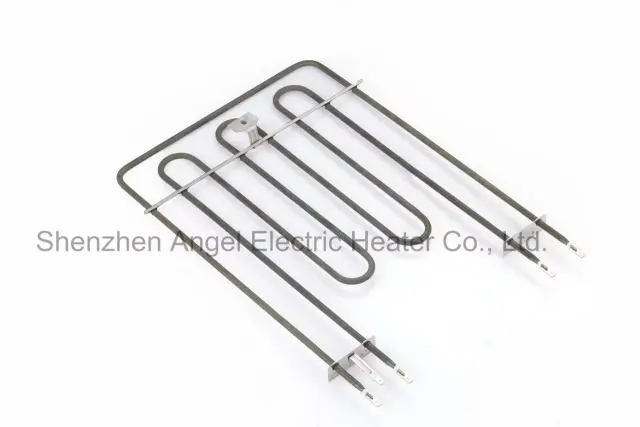Table of contents:
Exploring the Durability of SUS304 in Modern Electric Tube Heaters
How Corrosion Resistance Impacts the Longevity of Electric Duct Heaters
Comparing Different Stainless Steel Grades for Electric Tube Heaters
The Impact of Material Choice on Electric Tube Heater Performance
Exploring the Durability of SUS304 in Modern Electric Tube Heaters
SUS304 stainless steel has become the material of choice for many electric heater manufacturers, and for good reason. This high-quality alloy offers exceptional durability, making it ideal for the demanding conditions inside microwave ovens and industrial heating applications. Tubular heating elements manufacturers have recognized the superior properties of SUS304, including its resistance to high temperatures and its ability to withstand thermal cycling. These characteristics ensure that electric tube heaters made from SUS304 can maintain their structural integrity and performance over extended periods, even when subjected to frequent heating and cooling cycles.
How Corrosion Resistance Impacts the Longevity of Electric Duct Heaters
One of the key advantages that stainless steel electric tube heaters offer is their exceptional corrosion resistance. This property is particularly crucial for electric duct heaters, which are often exposed to moisture and potentially corrosive elements in the air. Electric heater manufacturers have capitalized on the inherent corrosion resistance of stainless steel to create products that can withstand harsh environments without degradation. The corrosion-resistant nature of stainless steel ensures that these heaters maintain their efficiency and safety over time, even when installed in challenging locations such as coastal areas or industrial settings. Tubular heating elements manufacturers have noted that this resistance to corrosion significantly extends the operational life of their products, providing customers with a more cost-effective heating solution in the long run.
Comparing Different Stainless Steel Grades for Electric Tube Heaters
While SUS304 is widely used, electric heater manufacturers also offer alternatives such as SUS321, INC840, and INC800 for specific applications. Each grade of stainless steel brings its own set of properties that can be advantageous in certain scenarios. For instance, SUS321 offers improved resistance to intergranular corrosion at high temperatures, making it suitable for applications where the heater is subjected to prolonged exposure to extreme heat. Tubular heating elements manufacturers must carefully consider the specific requirements of each application when selecting the appropriate stainless steel grade. Factors such as maximum operating temperature, chemical exposure, and thermal cycling frequency all play a role in determining the optimal material choice.
The Impact of Material Choice on Electric Tube Heater Performance
The selection of stainless steel for electric tube heaters goes beyond durability and corrosion resistance; it also significantly affects the overall performance of the heating system. Electric heater manufacturers have found that stainless steel's excellent thermal conductivity allows for efficient heat transfer, resulting in faster heating times and more uniform temperature distribution. This efficiency translates to energy savings for users, as less power is required to achieve and maintain desired temperatures. Additionally, the stable structure of stainless steel ensures that the heaters maintain their shape and performance characteristics even after repeated use at high temperatures.
The dominance of stainless steel electric tube heaters in the market is a testament to their superior qualities and the innovative efforts of electric heater manufacturers. As we move towards more energy-efficient and durable heating solutions, the role of these heaters is likely to expand further. The versatility of stainless steel allows tubular heating elements manufacturers to cater to a wide range of applications, from household appliances to industrial processes. With ongoing advancements in material science and manufacturing techniques, we can expect to see even more refined and efficient stainless steel electric tube heaters in the future, solidifying their position as the go-to choice for reliable and high-performance heating solutions.

No comments:
Post a Comment